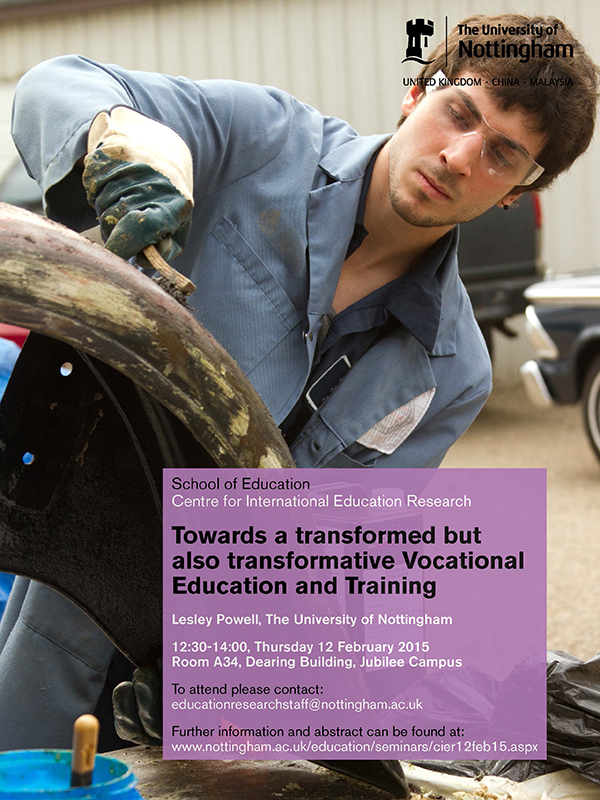
The United Nations Educational, Scientific and Cultural Organisation (UNESCO) has adopted the notion of Vocational Education and Training (VET) as being ‘transformed’ but also of being ‘transformative’ (UNESCO, 2014). This seminar draws on literatures from sociology, economics and philosophy to engage with this notion of a ‘transformed’ and a ‘transformative’ VET and forms part of a larger effort to develop a new theoretical lens for conceiving of VET as being for human development.
Two critical backdrops inform the discussion of the seminar. The first is the new wave of optimism in VET that has resulted in VET returning as a policy solution for economic growth, social justice, employment creation and poverty alleviation. The result is that political ambitions at both the international and national levels are to rapidly expand participation in VET. The second are the implications of climate change on the world in which humans are to live and the way we are to live in this world. And, in turn, the implications that this has for how we understand skills in VET and the role that skills are to play in development.
The central argument is that the notion of skills that underpin VET policy is problematic for achieving a ‘transformed VET’ where VET is radically transformed from its current focus on economics and human capital to a focus on the development and advancement of people. Also, that it is limited for developing VET as ‘transformative’, where VET not only adapts to accommodate changes in society and the world of work, but aims to challenge and to transform these. (UNESCO, 2014)
About the presenter
Lesley Powell is a postdoctoral researcher in the School of Education, University of Nottingham. Previously she worked as a policy researcher in South Africa on the Further Education and Training and Higher Education sectors, including serving as research manager of the College Collaboration Fund. Her interest is in developing a theoretical lens for VET which challenges and is alternate to neoliberalism and human capital approaches. To this end, she works within a human development framework (also called the capability approach) and the ontology and epistemology of critical realism.
References
UNESCO-UNEVOC (2014). Revising the 2001 revised recommendation concerning Technical and Vocational Education. Bonn: UNESCO-UNEVOC